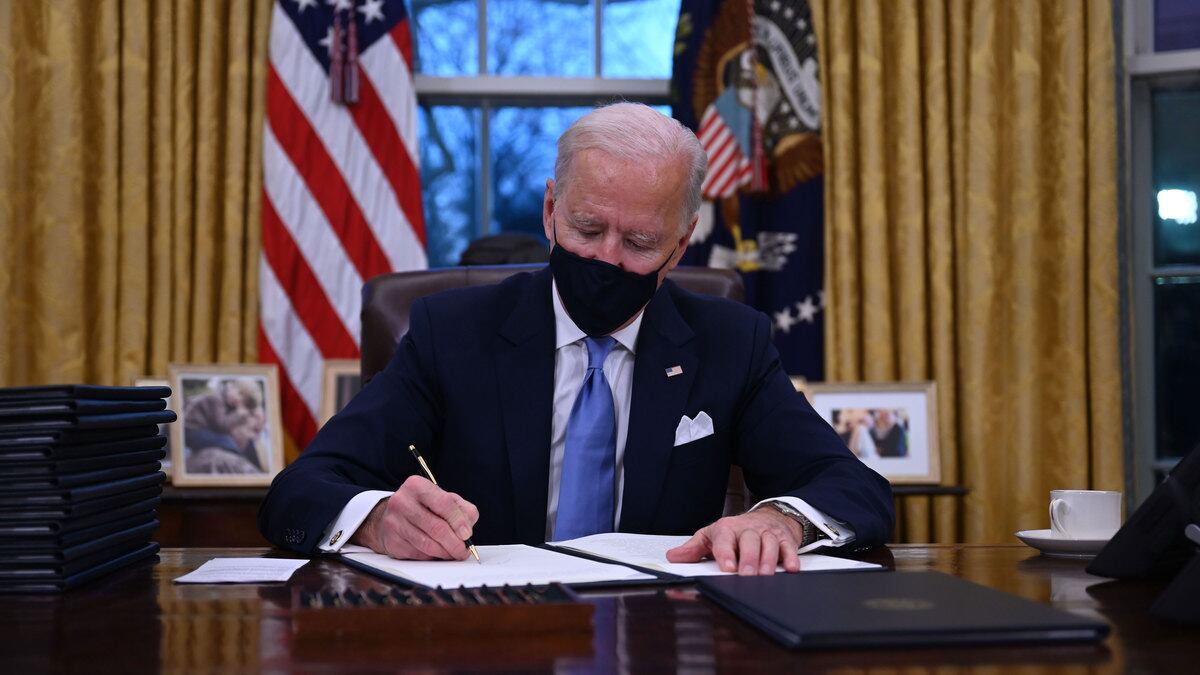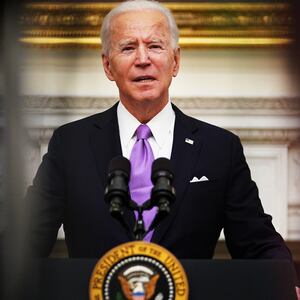After just over a week we can safely say that Joe Biden is the greatest president in American history.
I say that only because the last president, who shall remain nameless, repeatedly told us that he was the greatest president in American history. And Joe Biden is clearly better than he was. In fact, looking at the 30 executive orders produced by Biden, his vaccine plan, his restoration of normalcy to foreign policy, the efficiency and effectiveness of his administration to date, the diversity of his team, the transparency he has restored to the White House, the importance of some programs to which he has committed—from raising the minimum wage to $15 an hour to protecting our natural resources from commercial exploitation and systematically working to root out racially-driven inequity from our system—an objective observer would have to say that the Biden-Harris administration has done more good for the country in a week than the previous one had done in four years.
OK, I admit it. That’s easy to say since most of what the prior administration did was, in fact, bad for the country. Simply undoing their legacy will save lives, reduce economic inequality, revitalize the economy, protect the environment, and restore American leadership.
None of this was preordained. The Biden team inherited what is likely to be viewed as the greatest public health crisis in U.S. history (we will probably pass the death toll for 1918 flu epidemic sometime this spring), the biggest economic downturn since the Great Depression, a political crisis that included a coup attempt against the U.S. government, a crisis linked to America’s institutional racism, and the profound and deepening climate crisis. The outgoing administration also actively worked to impede the transition—more so than any of its predecessors in our history.
Nevertheless, the new president and his team continued to build on the discipline and effectiveness of their well-run political campaign. Despite provocations and attacks, they never took the bait from their conspiracy-theory and big-lie promoting opponents. They remained focused on the work at hand and confident in America’s political institutions.
In fact, Biden’s calm certainty that American democracy would survive the demented and corrupt onslaught of attacks from the leaders of the opposition and from the threatening network of right-wing extremists and white supremacist groups deserves more note than it has gotten. Biden was the steady hand, not just a politician but a man who understood both public service and the foundational concepts on which our system depends.
The result was not only unmistakably restorative; it was a commitment to the basics of doing the work, a return to once quotidian, recently neglected, notions of good governance. Nor was it simply a rhetorical shift or one that occurred simply within the confines of the White House.
As reported in a recent story by David Sanger in The New York Times, within days the Biden team had filled over 1,000 top jobs in the administration—a full quarter of all those open to them to fill. They also began to remove appointees put in place by the previous administration, some who had been put in jobs they hoped would preclude their removal, to serve as “moles” or as a kind of wannabe “deep state” for their patrons.
To those who understand how Washington works, it is a stunning start under the worst of circumstances. Much credit must go not only to the president and vice president but to the extremely capable team they have put in place led throughout this period by long-time Biden adviser and now White House Chief of Staff Ron Klain. Management is often the most undervalued skill set among our political elites. Not this time.
Indeed, those management abilities honed through decades of experience may give this administration an edge over the administration in which so many of its members developed much of that experience, that of Barack Obama. Obama is widely regarded to have gotten off to a good start. But several differences between the two administrations are clear, however.
These begin with Biden, who has dramatically more experience that Obama did when he came to the presidency. Biden, in fact, has more government experience than any prior president, including almost three times as many years of foreign policy experience as did George H.W. Bush, considered until now to be a standout in that regard.
Biden’s Cabinet is, as noted, more diverse, the first in history to achieve gender parity. It is a group that has been better vetted than Obama’s team was and thus appears likely to have fewer misfires in the appointment and confirmation process. They know one another and have worked together. Klain has more experience in the chief of staff role than any of his predecessors (except James Baker who served in the job twice).
On foreign policy, for example, Obama’s relationship with his incoming secretary of state, Hillary Clinton, was that of political rivals. He did not know National Security Adviser Jim Jones well, and that cost Jones, who was often second-guessed by Obama loyalists, a factor that led to his relatively brief tenure in the job. Obama’s first secretary of defense was a hold-over from the Bush years, Bob Gates, and not someone close to the president.
This led to the “team of rivals” description of the group. But it also produced less cohesion with a president who was himself very much a foreign and national security policy neophyte. That will not happen here. This team has worked together for a long time, and they are all well known to Biden who knows his brief well on these issues.
I should add that the Biden team stands out among the pool of potential Democratic nominees to these jobs not only by virtue of their experience and because they are regarded to be among the smartest members of the Democratic policy community. Also, as a former senior member of the Obama administration said to me, “[Biden] didn’t pick many assholes. The asshole quotient is very low in this group. They will get along and they won’t try to blow each other up.”
In a not entirely unrelated observation, Biden moved away from certain key groups that dominated thinking during the Obama years, notably on economic policy. Obama’s group, understandably, given the financial crisis he inherited, was very Wall Street oriented, mostly disciples of Clinton Treasury Secretary Bob Rubin. The group led by incoming Treasury Secretary Janet Yellen is less in the thrall of the capital markets and big money and, by inclination, more progressive. Yellen’s stance during her hearings, saying that she supported major relief for the market now and that we could handle the debt implications, was a strong signal in this regard.
It is of course early days to make sweeping judgments. And there are worrying signs on the horizon. There are a lot of strong personalities in the administration, and it remains to be seen whether they will be able to maintain process discipline. More worrying is the fact that Biden’s calls for unity and his aspiration to bipartisan support have not produced any notable course-changes from the GOP (although, to be fair, thus far, Biden’s key Cabinet nominations have had solid bipartisan support).
Mitch McConnell dragged his feet on power-sharing with new Majority Leader Chuck Schumer. Most in the congressional GOP have proven unwilling to even join in condemnation of the insurrection that led to five deaths and hundreds of injuries in the building in which they themselves work. Partisan divisions seem as bad as ever.
That said, we have been through hell for four years. We reached a nadir when it comes to presidential leadership, good governance, the level of corruption, and even of the loyalty of the president and his supporters to our Constitution or our country. So, if there is good news, if there are signs of progress, let’s not blame ourselves too much for savoring them and seeing them as hopeful signs about this country’s future.







